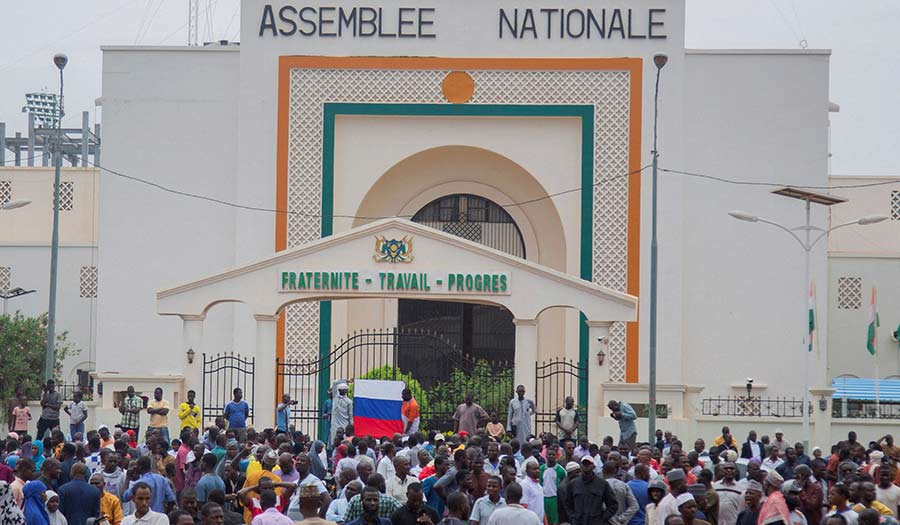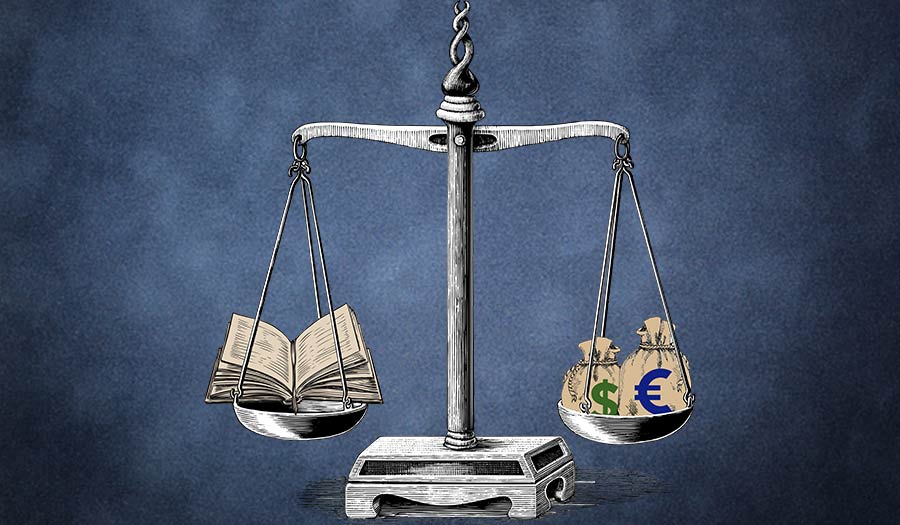 REUTERS/Souleymane Ag Anara
REUTERS/Souleymane Ag Anara
World News Desk
Learn the why behind the headlines.
Subscribe to the Real Truth for FREE news and analysis.
Subscribe NowNiger’s regional and international partners are scrambling to respond to a military coup which political analysts say could have grave consequences for democratic progress and the fight against an insurgency by jihadist militants in West Africa.
Here is what is at stake.
‘Only Hope’ for Stability in Sahel
Niger became a democratic outlier in West Africa’s Sahel region following military takeovers in neighboring Mali, Burkina Faso and Chad since 2020.
All four countries of the arid Sahel region, just south of the Sahara, are now run by military leaders after soldiers in Niger said on Wednesday night they had ousted President Mohamed Bazoum.
Western nations have poured resources into Niger to bolster its security forces in the face of a growing insurgency by Islamist groups linked to al Qaeda and Islamic State.
The landlocked country had become the West’s “only hope” in the region to fight the militants, said one analyst, as military rulers in Mali and Burkina Faso have increasingly turned toward Russia as a strategic ally, distancing themselves from partners such as France.
The United States says it has spent around $500 million since 2012 to help Niger boost its security. The U.S. maintains a strong military presence in the country, where it has previously deployed armed drones.
Key Security Partner
Frustration over insecurity spurred the coups in Mali and Burkina Faso, although data from Armed Conflict Location & Event Data Project (ACLED), a crisis monitoring group, shows that violence has worsened in those countries since military juntas took control.
While it has managed to protect citizens better than its neighbors, Niger still suffers frequent militant attacks and rural banditry, according to ACLED.
France, which has had counter-insurgency troops in West Africa for a decade, has turned to Niger to base the bulk of its forces.
Between 1,000 and 1,500 French troops are based in the country, with support from drones and warplanes. Their role is solely to support Niger’s army when local forces identify operations in the border regions connecting Mali, Niger and Burkina Faso.
The European Union decided in December to set up a three-year military training mission in Niger, to which Germany contributes troops. Italy also has about 300 soldiers in the country.
Democratic Backslide
For leaders of the regional bloc the Economic Community of West African States (ECOWAS), the military uprising in Niger is a blow to its efforts to shore up democracy.
Following coups in Mali, Guinea, Burkina Faso and an attempted coup in Guinea-Bissau, the leaders of ECOWAS vowed that coups will no longer be tolerated in the region, which had been making strides toward shedding its “coup-belt” moniker before the latest wave.
Niger will be another test of the resolve and ability of regional leaders to dissuade soldiers from seizing power and convince them to return countries to democratic rule.
Following a summit in Guinea Bissau this month, ECOWAS leaders said they regretted that regional mediators had received minimal cooperation from the soldiers that took over in Mali, and Burkina Faso in ongoing efforts to restore constitutional order.
This report contains information from Reuters.
- Real Truth Magazine Articles
- ECONOMY & PERSONAL FINANCE
 7 Old Testament Laws That Would Fix the Global Economy
7 Old Testament Laws That Would Fix the Global Economy
More on Related Topics:
- Libya’s Instability Will Worsen Further Without a Unified Government and Elections, UN Envoy Says
- U.S. Warns a Famine in Sudan Is on Pace to Be the Deadliest in Decades as the World Looks Elsewhere
- U.S. Hands Over Its Last Military Base in Niger to the Ruling Junta
- Rights Group Says Sexual Violence Is Rampant in Sudan’s Conflict
- 755,000 People at Risk of Famine in Coming Months in War-torn Sudan, Experts Warn


